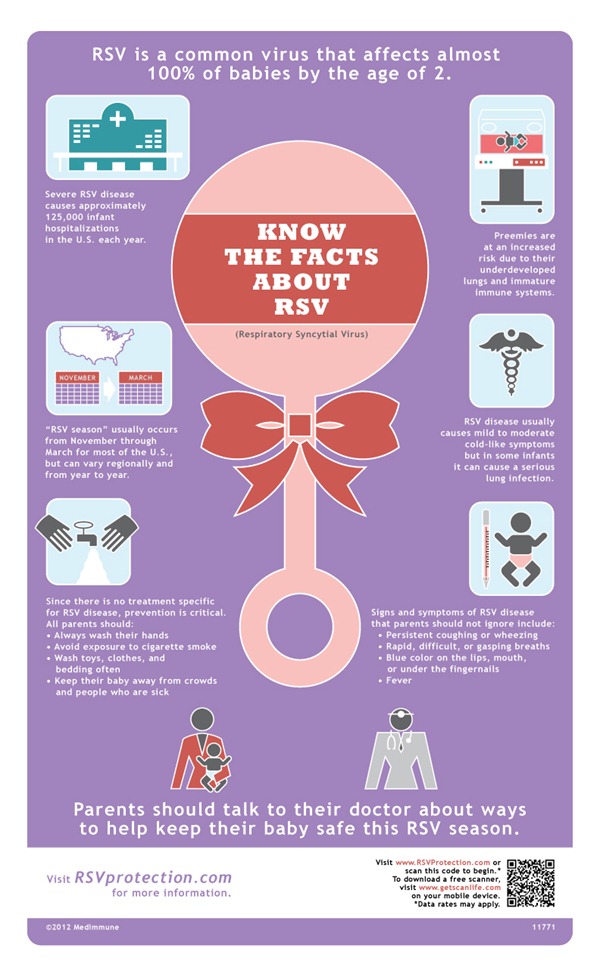If you have a child under the age of 6 who spends time in a daycare or pre-school, they are at risk for increased exposure to germs and viruses. If you have school-aged children, they may also be bringing home unwanted health issues into your home from school. My son is 8 now, but I encourage him to wash his hands several times during the day, reminding him to not forget to do so at school, also.
Respiratory syncytial virus, or RSV, is a common, seasonal virus that affects two-thirds of all infants by age one and almost 100% of babies by age two, because it’s highly contagious. RSV can live for hours on surfaces that your child may come in contact with, such as toys, tables and high chairs, and even sleeping or napping in close quarters. It’s most commonly spread through touching, hugging, and kissing. This virus can be especially serious for pre-term babies who are very susceptible to infection infection in the early weeks of their lives because of under-developed immune systems.
RSV is more common in November-March. Almost every baby will contract RSV by age 2, but only 1/3 of moms say they’ve heard of the virus. Serious RSV infection is the leading cause of infant hospitalization, responsible for more than 125,000 hospitalizations and up to 500 infant deaths each year. Some of the symptoms of RSV that require immediate medical attention are:
· Coughing or wheezing that does not stop
· Fast or troubled breathing
· Spread-out nostrils and/or a caved-in chest when trying to breathe
· Bluish color around the mouth or fingernails
· Fever (especially if it is over 100.4°F in infants under 3 months of age)
Since there is no treatment for RSV, practicing preventative measures is the most important thing you can do for your child. Making sure you wash you and your child’s hands, asking others to do the same when around your child, and keeping things like blankets and toys, and bedding wiped down and clean and avoiding crowds and others who are sick can go a long away in helping your child not contract RSV. Milder cases of RSV usually run their own course without any alarm, but even milder cases can be very serious for other children in your home who might have compromised immune systems. Even if your child is not in a daycare or pre-school setting where they may be more exposed to germs and viruses, they may at some point come in contact with other children who are, so it’s important to remember that RSV is a concern for any parent with small children.
We were so fortunate when my son was younger to have not dealt with RSV, but I know it’s a very real concern for any parent, so I hope this information will be beneficial to anyone reading this with small children. Knowing the facts about RSV can mean all the difference in keeping your small child healthy.
Visit www.RSVProtection.com and follow #RSVProtection on Twitter for more information.
I wrote this review while participating in a campaign for Mom Central Consulting on behalf of MedImmune and I received a promotional item to thank me for my participation.


Leave a Reply